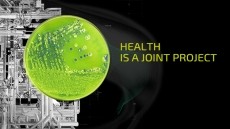Dow takes green route to peptide production
strong franchise in plant-based pharmaceutical production with the
signing of a contract to manufacture a new appetite suppressant.
Dow has been involved in a string of partnerships in the last few months aimed at developing various plant production systems for biopharmaceuticals, but until now most of the work it has done in this area has focused on monoclonal antibodies.
The new contract, with NOBEX, will see the company branch out into the production of peptides, a class of molecule which has been tipped for strong growth in the coming years.
Peptides are molecules made up of two or more (up to 100 to 150) amino acids, with the most well known peptide-based drug being insulin. Problems with delivering these relatively large molecules (they are easily degraded in the stomach) has held back research and companies have tended to focus instead on small molecule drugs.
However, recent advances in drug delivery has re-focused attention on peptides, and the market for peptide-based active pharmaceutical ingredients (APIs) is expected to grow more than 15 per cent a year - double the rate for APIs overall.
This suggests a valuable opportunity for companies that can develop cost-effective methods of manufacturing peptides, and plants have a number of properties that make them suitable.
For example, unlike commonly used microbial platforms such as Escherichia coli, plants can make a broader range of proteins with a wider range of structural modifications, and often make it easier to extract and purify the product.
Dow's contract to make NLC-001, a proprietary peptide currently in preclinical development as a potential appetite suppressant to treat obesity, is an affirmation of its progress in plant biomanufacturing.
Under the terms of the agreement, NOBEX will provide a proprietary gene sequence that will be used in combination with Dow Plant Biopharmaceuticals' proprietary expression technology.
The initial expression of the peptide will take place in plant cell suspension to see if plant tissues can be used to secrete the drug, providing a feasibility reading several months earlier than going straight into whole plants. If successful, production may be moved to whole plants for rapid scale-up.
The peptide will be conjugated to a polymer technology for oral administration, and if it gets through to market the volume of peptide that will have to be made is likely to be considerable.
"The larger volumes needed for oral delivery utilising our innovative polymer technology led us to consider Dow's alternative expression system," commented Radha Krishnan, senior director of chemical development and manufacturing for NOBEX.
The plant-based approach was appealing because it promises lower costs, higher expression levels and higher volume production than microbial or cell culture production, he added.
Carolyn Fritz, general manager for industrial biotechnology, said that the attractions of plant-based manufacture include the ability to make difficult-to-express proteins, as well as fast initial assessment of the process and scalability. And the technology also avoids the specific patents and royalties associated with traditional mammalian cell and yeast technologies owned by others, she noted.








